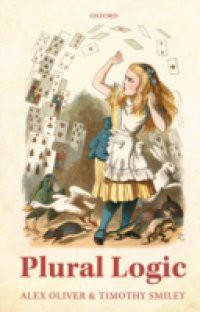Alex Oliver and Timothy Smiley provide a natural point of entry to what for most readers will be a new subject. Plural logic deals with plural terms (Whitehead and Russell, Henry VIIIs wives, the real numbers, the square roots of -1, they), plural predicates (surrounded the fort, are prime, are consistent, imply), and plural quantification (some things, any things). Current logic is singularist: its terms stand for at most one thing. Bycontrast, the foundational thesis of this book is that a particular term may legitimately stand for several things at once; in other words, there is such a thing as genuinely plural denotation. The authors argue that plural phenomena need to be taken seriously and that the only viable response is to adopt aplural logic, a logic based on plural denotation. They expound a framework of ideas that includes the distinction between distributive and collective predicates, the theory of plural descriptions, multivalued functions, and lists. A formal system of plural logic is presented in three stages, before being applied to Cantorian set theory as an illustration.Technicalities have been kept to a minimum, and anyone who is familiar with the classical predicate calculus should be able to follow it. The authors approach is an attractive blend of no-nonsense argumentative directness and open-minded liberalism, and they convey the exciting and unexpected richness of their subject. Mathematicians and linguists, as well as logicians and philosophers, will find surprises in this book.

